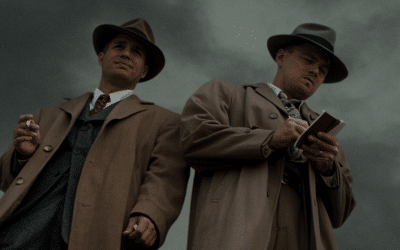
Unreliable Narrators in Suspense
Suspense fiction thrives on the unpredictable, weaving narratives that grip with tension and mysteries that unravel in the least expected ways. At the heart of many such stories lies the unreliable narrator, a master of deception whose twisted tales challenge perceptions and question reality.
Diving into the labyrinth of suspense fiction, one finds themselves in a hall of mirrors, where every reflection distorts the truth and every shadow hides a secret. This exploration delves into some of the most memorable unreliable narrators who have captivated readers and viewers alike, proving that sometimes, the most thrilling journey is not about finding the truth, but questioning everything we thought we knew.
Consider the haunting corridors of Manderley in Daphne du Maurier’s “Rebecca,” where the ghost of a past wife looms large over a young bride and her mysterious husband, Maxim de Winter. The nameless narrator’s self-doubt and naiveté cloud her perception, leading readers down a path strewn with secrets and lies. The novel’s atmospheric tension and psychological depth have inspired numerous adaptations, most notably Alfred Hitchcock’s 1940 film, which captures the story’s eerie essence and complex characters, making audiences question what lurks beneath the surface of a seemingly perfect life.
Patricia Highsmith’s “The Talented Mr. Ripley” introduces readers to Tom Ripley, a chameleon-like figure whose talents extend far beyond mere mimicry. Ripley’s charm and intelligence make him a captivating narrator, even as his dark ambitions reveal a chilling capacity for manipulation and murder. Highsmith masterfully blurs the lines between sympathy and horror, drawing readers into Ripley’s twisted psyche. The novel’s adaptation into the 1999 film starring Matt Damon further explores the enigmatic nature of Ripley, showcasing the terrifying allure of an unreliable narrator who wears deceit as easily as a tailored suit.
In “Fight Club” by Chuck Palahniuk, readers are thrust into the mind of an unnamed protagonist battling insomnia and disillusionment with modern life. The introduction of Tyler Durden, a charismatic and anarchistic figure, leads to the creation of Fight Club, a secret society that spirals into something far more sinister. Palahniuk’s narrative is a dizzying blend of reality and illusion, with the shocking revelation of Tyler’s true nature forcing readers to question everything they believed about the narrator. The 1999 film adaptation captures the novel’s gritty aesthetic and psychological depth, making the twist all the more impactful.
“Atonement” by Ian McEwan presents a different kind of unreliability, one rooted in misunderstanding and the desire for redemption. Through the eyes of young Briony Tallis, readers witness an accusation that changes the lives of her sister Cecilia and her lover, Robbie, forever. McEwan expertly navigates the complexities of perspective and memory, revealing how a single moment can alter the course of multiple lives. The novel’s adaptation into a critically acclaimed 2007 film brings this heartbreaking story of love and loss to life, underscoring the power of narrative to both destroy and heal.
Shifting to a more recent example, “The Woman in the Window” by A.J. Finn introduces Dr. Anna Fox, an agoraphobic psychologist who believes she witnesses a crime in her neighbor’s house. Finn expertly crafts a narrative filled with doubt and paranoia, as Anna’s reliability is constantly questioned due to her psychological state and dependence on alcohol and medication. The novel’s suspense is rooted in the tension between reality and perception, leading readers on a thrilling ride that culminates in shocking revelations. The adaptation of the novel into a 2021 film further explores the themes of isolation and the search for truth in a world where seeing is not always believing.
These narratives, each a masterpiece in its own right, showcase the compelling allure of the unreliable narrator. Whether through the lens of psychological thriller, Gothic romance, or social commentary, these stories challenge readers to question the nature of truth and the reliability of perception. In the ever-twisting corridors of suspense fiction, the unreliable narrator stands as a testament to the genre’s ability to delve into the darkest corners of the human mind, proving that the most enthralling mysteries are those that lie within us.
More Suspense Features
Suspense Themes
What are some of the common themes of suspense?
What is the Suspense Genre?
The unique qualities of the suspense genre
Revenge and Redemption
A Twisted Tango of Tension and Triumph



